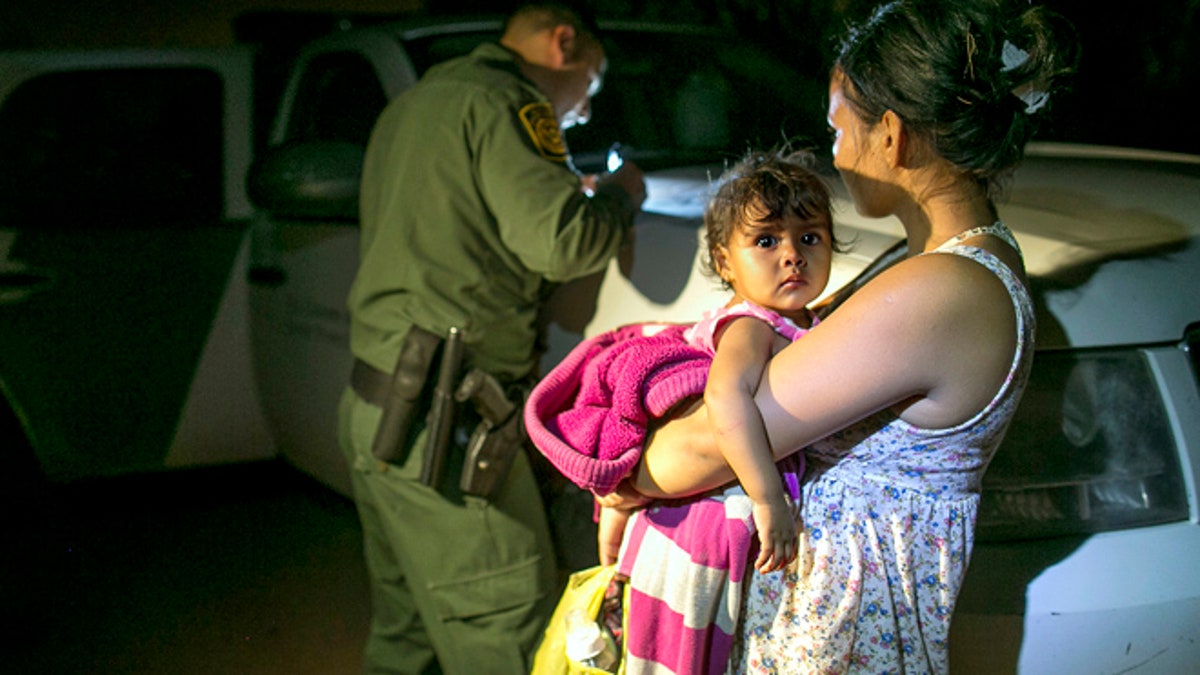
July 3, 2014: Flor Garcia, 19, of Honduras, holds her 1-year-old daughter, Flor Fernandez, after they turned themselves over to Customs and Border Protection Services agents after crossing the Rio Grande from Mexico near McAllen, Texas. (AP/Austin American-Statesman)
Some 40 illegal immigrants, including both adults and children, were returned to Honduras from a U.S. detention facility in New Mexico on Monday, Homeland Security officials confirmed to FoxNews.com.
The group had been housed at the Federal Law Enforcement Training Center in Artesia, N.M., and was among thousands of illegal immigrants from Central American countries, including Honduras, Guatemala and El Salvador, apprehended at the border.
After the plane landed, U.S. officials touted the move as a step in the right direction.
“As President Obama, the vice president, and (Department of Homeland Security) Secretary (Jeh) Johnson have said, our border is not open to illegal migration and we will send recent illegal migrants back,” Homeland Security officials said in a written statement.
The proverbial pat on the back for sending 40 Hondurans home came as close to 82,000 illegal immigrants remain in the country. Of that number, minors make up about 57,000.
Homeland Security officials said Monday’s flight was just the “initial wave” of deportations. Immigration officials have seen a spike in immigration in recent months as false rumors spread of a June deadline under which they could legally stay in the U.S.
Many of those who crossed the border said they came to America looking to escape atrocities back home.
As required by law, recent border crossers subjected to expedited removal are screened for “credible fear,” DHS said, adding that despite quick removal proceedings, adults and children “maintain important due process rights, including the ability to seek asylum, appeal to an immigration judge the denial of a credible fear finding, and the ability to seek legal representation.”
Last week, the president of Honduras declared a humanitarian emergency and announced that the country would create a revolving fund to coordinate the deportation and reintegration of children.
In Honduras, immigration officers review the documents of deportees before they leave the plane. They are then moved to a processing center where they get their “documentation, coffee, hygiene kits, and their property (i.e. luggage),” ICE officials said.
Representatives from the Labor Office are there to help them with employment, and, in a separate office, the National Registry of Persons signs them up for national identification if they don’t have any.
For minors, the child welfare agency in Honduras tries to connect them with family members living in the country.




